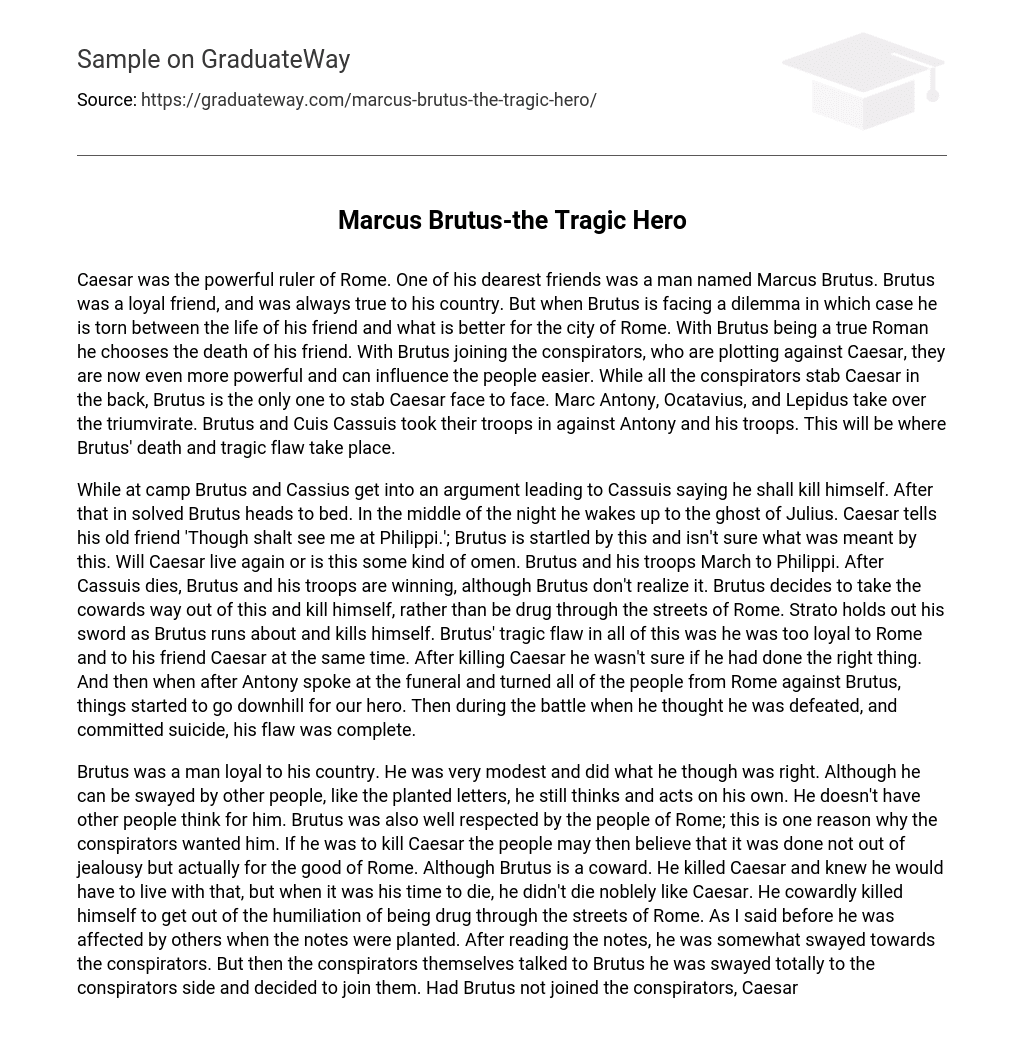Caesar held great power in Rome, with Marcus Brutus as one of his closest friends. Brutus was a loyal and patriotic man, torn between his allegiance to his friend and what he believed was best for Rome. In his devotion to Rome, Brutus chose to betray his friend and join the conspirators plotting against Caesar. This decision gave them more influence and made it easier to manipulate the people. While all conspirators backstabbed Caesar, Brutus was the only one who confronted him face to face. Following this betrayal, Marc Antony, Octavius, and Lepidus took control of the triumvirate. Brutus and Cuis Cassius led their troops against Antony’s forces, leading to the tragic events that would result in Brutus’ own demise.
During camp, Brutus and Cassius argue. Cassius threatens suicide, leaving Brutus unsettled. At night, Julius Caesar’s ghost appears to Brutus and mysteriously says, “You will see me at Philippi.” Unsure of the meaning, Brutus leads his troops to Philippi. After Cassius’ death, Brutus and his troops are winning the battle without his knowledge. Overwhelmed, instead of facing public humiliation in Rome’s streets, he takes his own life. Strato presents a sword as Brutus panics and he accepts it to end his life. His tragic flaw is his excessive loyalty to both Rome and Caesar as friends. Doubts arise after assassinating Caesar while Antony’s persuasive speech turns Rome against him at the funeral. In a state of despair during the battle when he believes defeat is imminent, he commits suicide solidifying the consequences of his flaw.
Brutus, a man renowned for his loyalty and modesty, as well as his unwavering commitment to doing what he believed was right, despite being susceptible to influence from others (as evidenced by the planted letters), managed to maintain independence in his thoughts and actions. The conspirators singled him out due to the immense respect he commanded among the people of Rome. Their objective was to exploit Brutus’ involvement in Caesar’s assassination as a means of persuading the public that their motives were driven not by envy but rather by what they perceived as Rome’s best interests. It is worth noting that Brutus demonstrated cowardice by opting not to confront death with the same nobility displayed by Caesar; instead, he chose to end his own life in order to avoid being publicly humiliated on Rome’s streets. Despite initially succumbing to the influence of the planted notes, Brutus fully aligned himself with the conspirators once they approached him directly. This fateful decision ultimately led to Caesar’s downfall and could have potentially resulted in a new triumvirate comprising Brutus, Antony, and Caesar had Brutus not sided with the conspirators.
He distinguished himself as the most honorable Roman among all the conspirators. While others were motivated by jealousy towards the esteemed Caesar, he displayed genuine and selfless intentions for the greater good, thus aligning himself with them.
His life was so gentle that the elements were blended in him to the extent that Nature could affirm to the whole world, ‘This person was a man!’;





